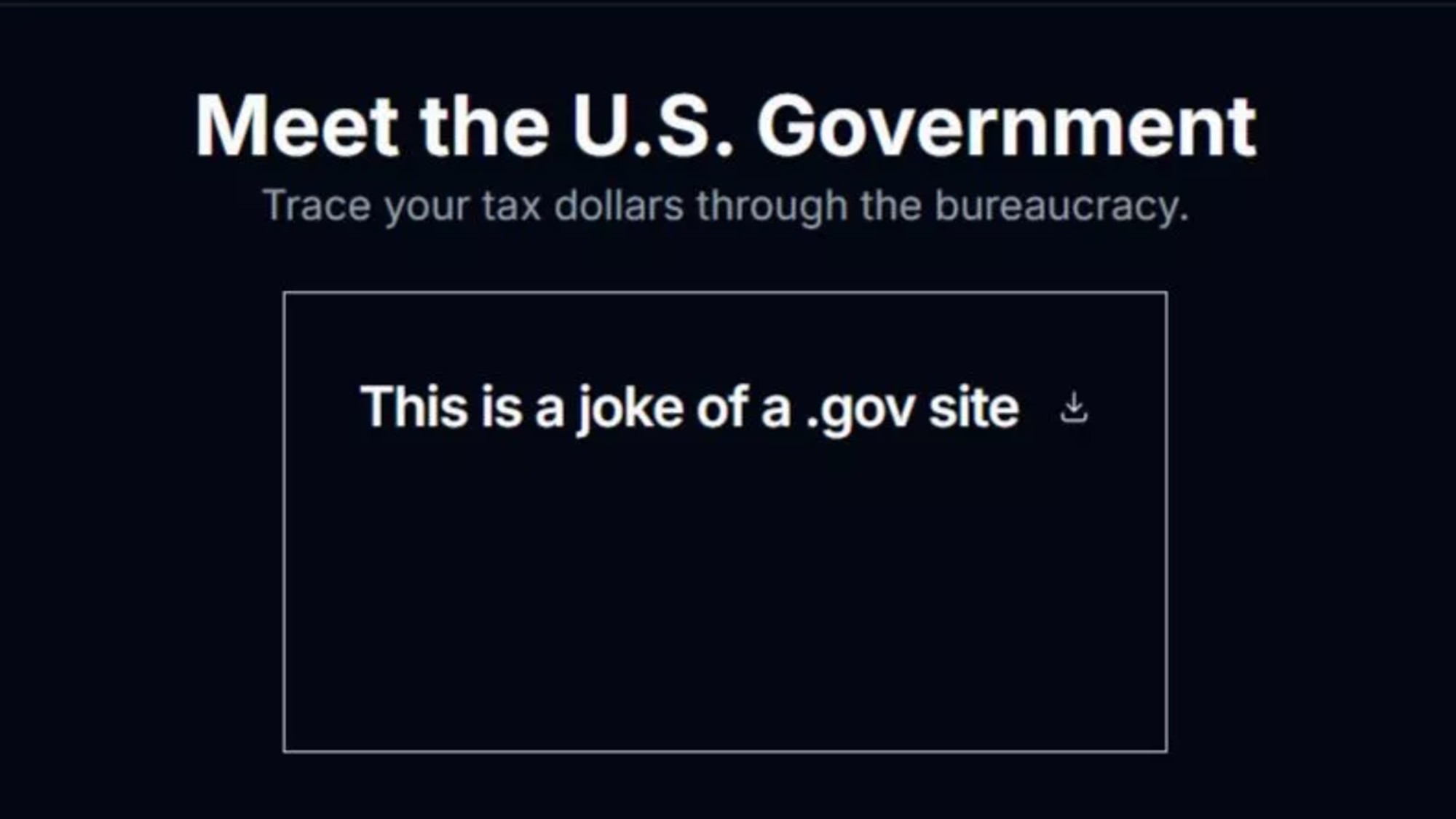Elon Musk's DOGE website has gotten off to a bad start
The site was reportedly able to be edited by anyone when it first came online


A free daily email with the biggest news stories of the day – and the best features from TheWeek.com
You are now subscribed
Your newsletter sign-up was successful
Elon Musk set up a website for his Department of Government Efficiency to track cuts to the federal budget, but it had a lot of trouble getting off the ground. The DOGE site went live on Feb. 12 as part of a commitment by Musk to be "as transparent as possible" but immediately appeared prone to a number of pitfalls.
The website seemed to be partially fixed once Musk discovered the problem, but not before online users were able to take advantage of it at DOGE's expense. Some are wondering if the debacle is indicative of things to come.
What happened with the website?
The website, www.doge.gov, was set up as a "portal tracking the size of the federal workforce and documenting the number of federal regulations," said The Washington Post. It currently includes a stream of X posts showing a "running log of the actions" that DOGE is taking to slash government funding, including one "applauding the Department of Education, for example, for canceling grants in line with Musk's effort to cut $1 trillion in federal spending."
The Week
Escape your echo chamber. Get the facts behind the news, plus analysis from multiple perspectives.

Sign up for The Week's Free Newsletters
From our morning news briefing to a weekly Good News Newsletter, get the best of The Week delivered directly to your inbox.
From our morning news briefing to a weekly Good News Newsletter, get the best of The Week delivered directly to your inbox.
Before this, though, it appeared that the website got off to a haphazard launch. At the outset, the website was simply a "default WordPress sample page that includes language about an imaginary architecture firm," according to tech publication 404Media. The only thing identifying it as a government website appeared to be a tagline at the top that read: "Waste.gov: Tracking government waste."
Eventually, this was fixed, but a new problem emerged: the website was found to be "insecure and pulls from a database that can be edited by anyone," said another report from 404Media. This was largely because the website was not hosted on a government server but on an open platform called Cloudflare Pages. This led to several posts on the site that read, "This is a joke of a .gov site" and "THESE 'EXPERTS' LEFT THEIR DATABASE OPEN."
The website "feels like it was completely slapped together. Tons of errors and details leaked in the page source code," an anonymous coder said to 404Media.
What is happening now?
It "appears that the DOGE team has since fixed the issue with their website, as the messages are now gone," said Newsweek. But this is not the only government website that has experienced issues under the new Trump administration; the "newly created Waste.gov site was hidden behind a password after going live with a default WordPress template," said Mashable, in a manner similar to the DOGE website.
A free daily email with the biggest news stories of the day – and the best features from TheWeek.com
The DOGE page is "still very much a work in progress," said Fortune, and it is unclear if similar problems could arise in the future. The agency has "come under considerable fire for its rapid pace changes to several government departments over the past several weeks." Aside from the cuts to the Education Department, this also includes the controversial shuttering of the nation's primary foreign aid agency, USAID.
The website rollout doesn't seem to have generated much of a response from Musk, who often interacts with people directly on X. He has "yet to comment on the hacks as he continues promising 'transparency,'" said The New Republic. The website has also "posted classified information" about the country's satellite intelligence-building agency, the National Reconnaissance Office, according to HuffPost, which could create further controversy.
Justin Klawans has worked as a staff writer at The Week since 2022. He began his career covering local news before joining Newsweek as a breaking news reporter, where he wrote about politics, national and global affairs, business, crime, sports, film, television and other news. Justin has also freelanced for outlets including Collider and United Press International.
-
 Political cartoons for February 15
Political cartoons for February 15Cartoons Sunday's political cartoons include political ventriloquism, Europe in the middle, and more
-
 The broken water companies failing England and Wales
The broken water companies failing England and WalesExplainer With rising bills, deteriorating river health and a lack of investment, regulators face an uphill battle to stabilise the industry
-
 A thrilling foodie city in northern Japan
A thrilling foodie city in northern JapanThe Week Recommends The food scene here is ‘unspoilt’ and ‘fun’
-
 Are AI bots conspiring against us?
Are AI bots conspiring against us?Talking Point Moltbook, the AI social network where humans are banned, may be the tip of the iceberg
-
 Elon Musk’s pivot from Mars to the moon
Elon Musk’s pivot from Mars to the moonIn the Spotlight SpaceX shifts focus with IPO approaching
-
 Moltbook: the AI social media platform with no humans allowed
Moltbook: the AI social media platform with no humans allowedThe Explainer From ‘gripes’ about human programmers to creating new religions, the new AI-only network could bring us closer to the point of ‘singularity’
-
 TikTok finalizes deal creating US version
TikTok finalizes deal creating US versionSpeed Read The deal comes after tense back-and-forth negotiations
-
 Will regulators put a stop to Grok’s deepfake porn images of real people?
Will regulators put a stop to Grok’s deepfake porn images of real people?Today’s Big Question Users command AI chatbot to undress pictures of women and children
-
 Data centers could soon be orbiting in space
Data centers could soon be orbiting in spaceUnder the radar The AI revolution is going cosmic
-
 What is Roomba’s legacy after iRobot bankruptcy?
What is Roomba’s legacy after iRobot bankruptcy?In the Spotlight Tariffs and cheaper rivals have displaced the innovative robot company
-
 AI griefbots create a computerized afterlife
AI griefbots create a computerized afterlifeUnder the Radar Some say the machines help people mourn; others are skeptical
